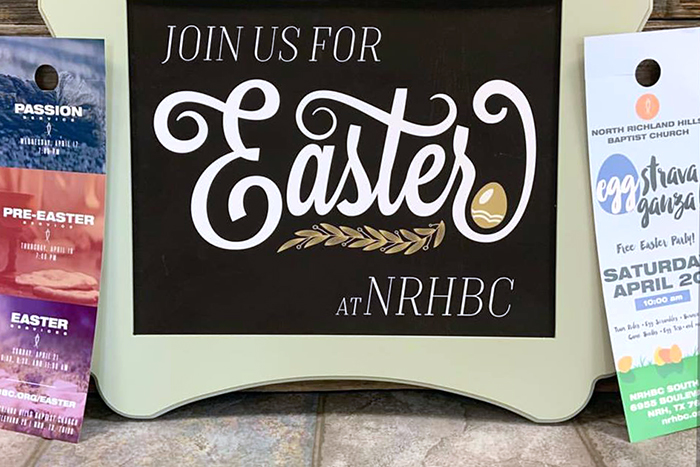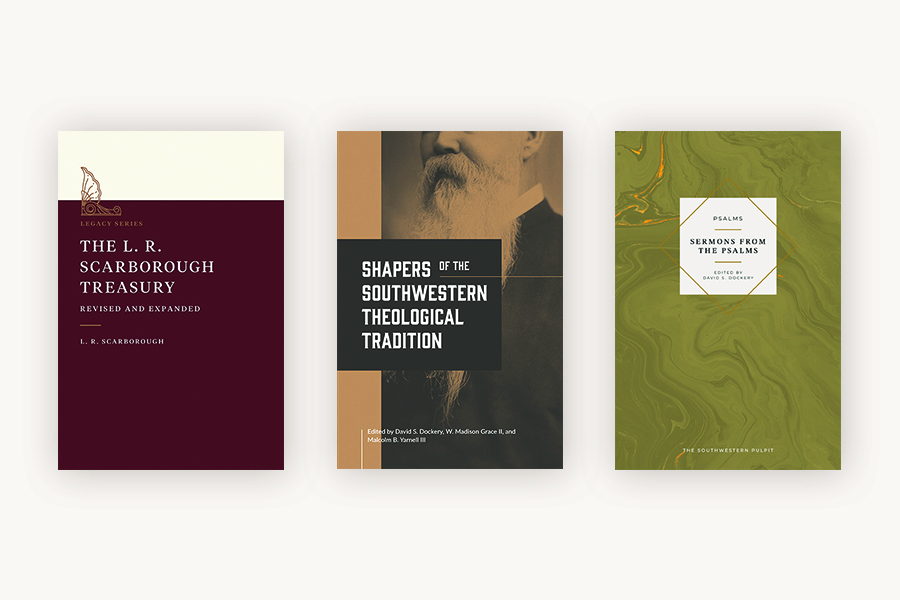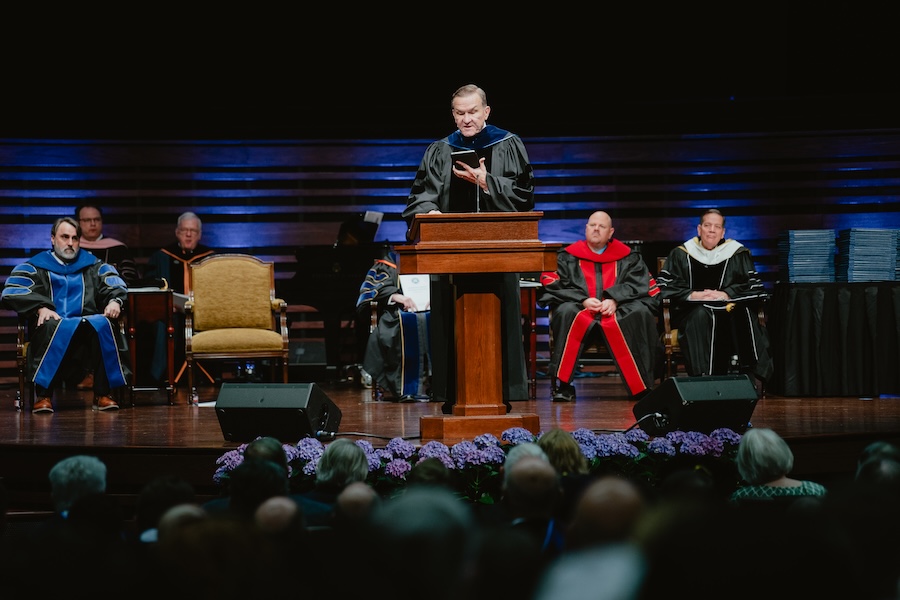FIRST-PERSON: You never know when God is up to something

The Sunday before Easter, North Richland Hills Baptist Church, of which I am a member, sent out teams of two to three for door-to-door evangelism in local neighborhoods. I personally led a team of three high school students—Jack, Noah, and Curtis. Together, the four of us knocked on doors, prayed with those who answered, distributed fliers for our upcoming Easter services, and had the opportunity to present the Gospel twice.
Curtis had arrived to our team late, as he had overslept that afternoon and searched for a group to join. Another team found him walking through our assigned neighborhood (which was directly across from the church) and dropped him off with us. While Jack, Noah, and I took turns leading conversations, Curtis took responsibility for hanging fliers on doors where we received no answer.
As it happened, the two opportunities we had to share the Gospel were during conversations that I was leading. Being quite familiar with the evangelism stories emerging from The Southwestern Baptist Theological Seminary students and faculty, I began my presentations with a traditional diagnostic question—“If the worst happened and you were to die today and stand at the gates of heaven, and God asked you why He should let you in, what would you say?”
Neither of the two Gospel presentations yielded a decision, but my team understood that God was using us nevertheless, perhaps to till the soil of these people’s hearts. Little did I know at the time that Curtis felt deeply convicted by my diagnostic question.
He didn’t share this with me at the time, but a few a days later, Curtis spoke with one of our student ministers, Daniel Simmons, sharing how convicted he felt by my Gospel presentations. In short, after being confronted with that question, Curtis realized he didn’t have an answer, and he understood that he was not a Christian. Simmons, a Master of Divinity student at Southwestern Seminary, then led him to Christ, and Curtis was baptized two Sundays later.
During his baptism, the minister performing the baptism shared Curtis’ story, noting that he had grown up in church and heard the Gospel many times, but it never clicked until that Sunday before Easter. Though I had not aimed the diagnostic question directly at Curtis, nor had I directly shared the Gospel with him, God apparently worked through those Gospel presentations indirectly, beckoning Curtis to realize his need for salvation.
So, interestingly enough, our door-to-door evangelism did ultimately result in a profession of faith, but it didn’t come from one of the people on whose doors we knocked; instead, it was one of the evangelists who got saved. Praise the Lord!
A few lessons can be learned from this experience. First, you never know what God is up to. We know that God is the one who works in people’s hearts for salvation, and we know that this work is largely unseen. For this reason, we never know how God is at work behind the scenes of our evangelism encounters. Sometimes He works in ways that we don’t expect but that bring about immense blessings nevertheless. Such was the case in this story. The takeaway, then, is to be faithful to share the Gospel as often as we can. Maybe the person with whom we share the Gospel will get saved, or maybe one of our fellow evangelists will get saved. Who knows? We just need to step up to the plate and let God do His work—whatever it may be—through us.
Second, random events are never really random. It was not coincidence that Curtis overslept, that he was picked up by that other evangelism team and then dropped off with us, that the opportunities our team had to share the Gospel were during conversations that I was leading, or that I specifically began my presentations with a diagnostic question that I would be too afraid to use if I hadn’t seen it used so many times by other Southwestern Seminary evangelists. God orchestrated all of these events (and countless others) to draw Curtis to Himself.
Third, as Jesus says in John 4:37, “the saying is true: ‘One sows and another reaps.’” Many people had shared the Gospel with Curtis. By the time he joined our evangelism team that day, he had heard countless Gospel presentations. The seed had been thoroughly sown, as it were. It just so happened that God granted me the privilege of asking the question that finally got through to him. This says nothing about me or my evangelistic abilities; it speaks to the fact that we must be persistent in sharing the Gospel, because you never know when it will finally click with someone. Now, after all these years of hearing, Curtis finally understands and has been saved, and the “the sower and reaper can rejoice together” (John 4:36).
Finally, we should be bold in our evangelism. Admittedly, the “diagnostic question” makes me uncomfortable, and I’m somewhat intimidated to ask it to strangers on their doorsteps. But asking it twice on that day taught me two things: one, most people* have no problem answering that question; and two, that was the very question that led to Curtis’ salvation. At the risk of sounding overly pragmatic, it worked! God used it. So let’s not shrink back from asking the hard questions; let’s be bold! Someone’s eternal destination may be changed as a result.
*For the sake of full disclosure, some of the evangelism teams that day had doors slammed in their faces. I personally was spared from such treatment, but I do acknowledge that not everyone will respond to door-to-door evangelism the same way. But it should also be noted that those who had doors slammed in their faces simply proceeded to the next houses and continued evangelizing.



